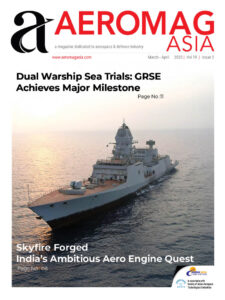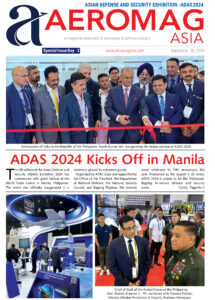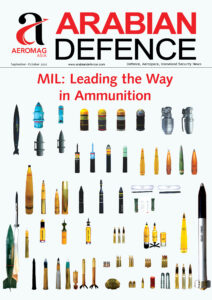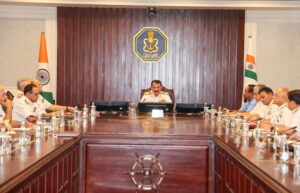Defen
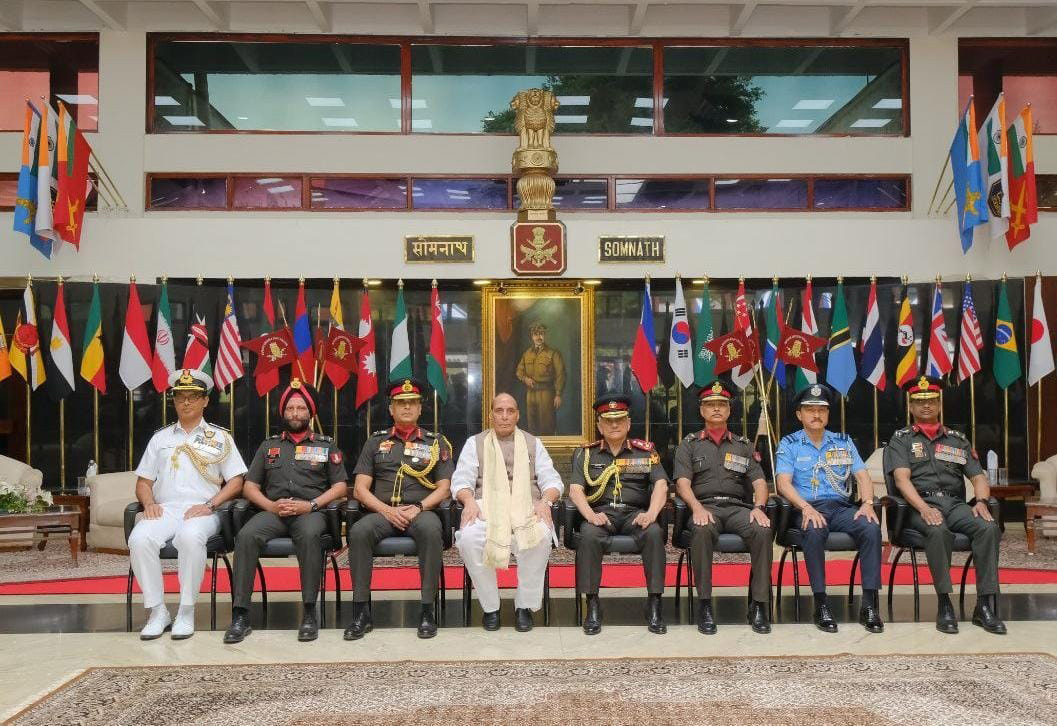
ce Minister Rajnath Singh addressed the convocation ceremony of the 80th Staff Course at the Defence Services Staff College (DSSC) in Wellington, Tamil Nadu on April 10, emphasizing the necessity for the Armed Forces to adapt to evolving warfare domains.
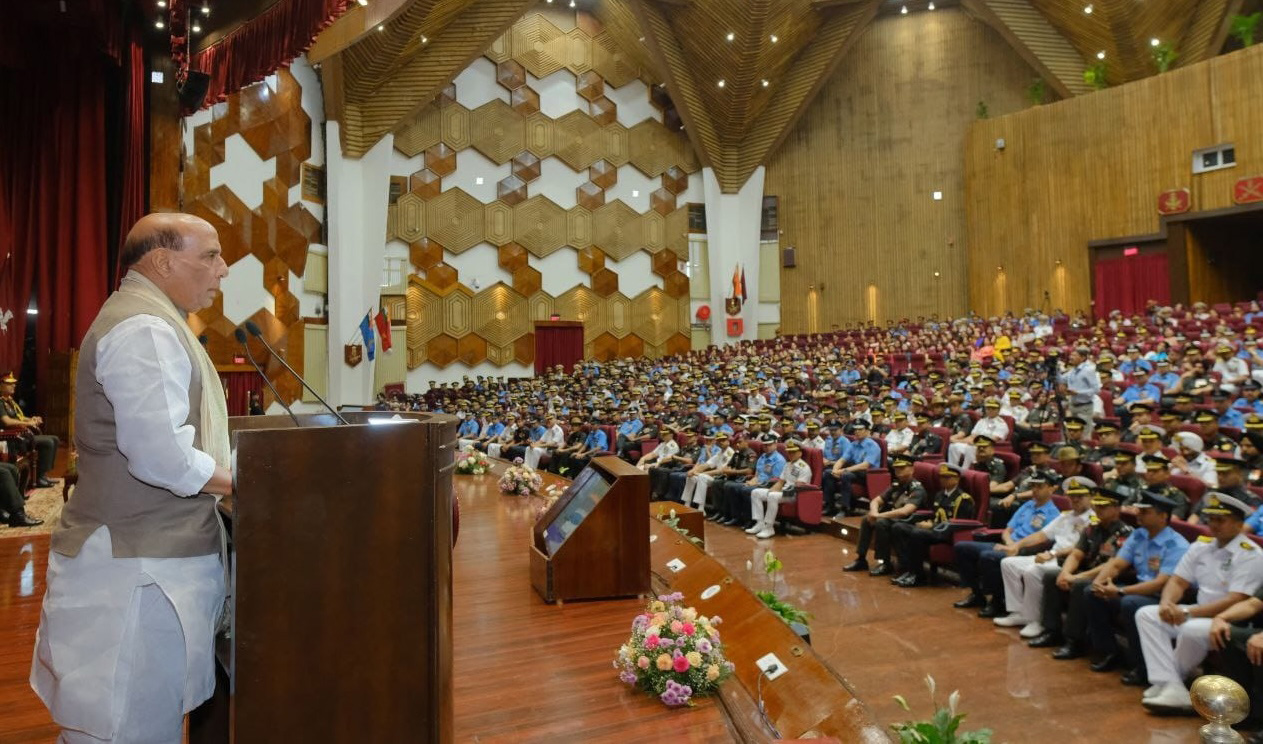
In his speech, Singh highlighted the importance of integrating cyber, space, and information warfare capabilities alongside traditional military operations. He noted that contemporary conflicts require a multifaceted approach, combining conventional tactics with advanced technological strategies.
“Armed Forces must operate jointly and remain future-ready in today’s ever-evolving multi-domain environment where cyber, space & information warfare etc. are as potent as conventional operations,” he remarked.
He pointed out that today’s global geopolitics is being redefined by three key metrics: a major pivot towards prioritising national security, a technological tsunami sweeping the global landscape, and accelerating innovation. He urged the officers to study the nuances of these trends in-depth to stay ahead on strategic-military change curve, adding that Prime Minister Narendra Modi-led Government is leaving no stone unturned to transform the Armed Forces into a technologically-advanced combat-ready force capable of multi-domain integrated operations.
Highlighting that Artificial Intelligence and other emerging technologies are revolutionising deterrence and war-fighting in critical ways, Rajnath Singh termed the power of technological innovation in combat theatres as breathtaking. “In the Ukraine-Russia conflict, drones have virtually emerged as a new arm, if not a transformative science. The majority of losses of soldiers and equipment have been attributed neither to traditional artillery nor to armour but to drones. Similarly, space capacities in the Low Earth Orbit are transforming military intelligence, persistent surveillance, positioning, targeting and communications, thus taking combat to a new high,” he said.
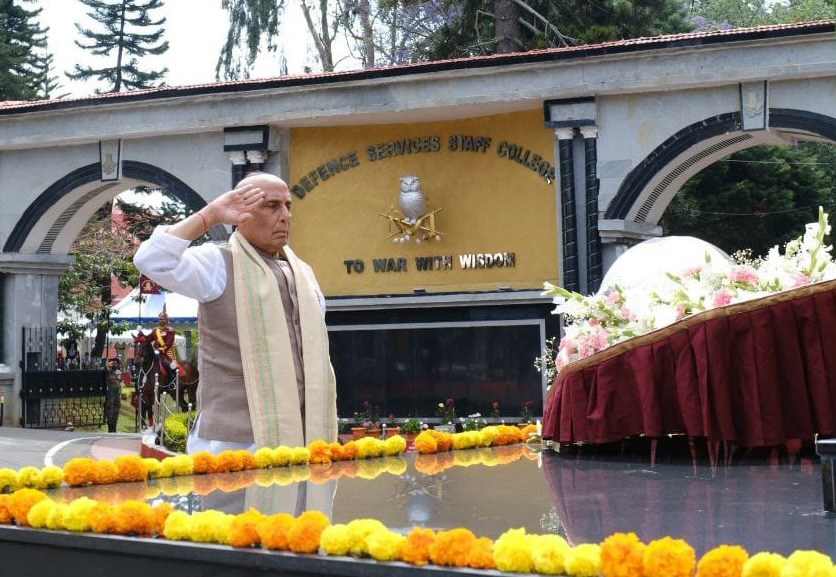
The minister stressed that the world is in the age of Grey Zone and Hybrid warfare where cyber-attacks, disinformation campaigns, and economic warfare have become tools that can achieve politico-military aims without a single shot being fired. He added that India faces persistent threats along its borders, which are further compounded by the challenge of proxy war and terrorism emanating from its neighbourhood.
Rajnath Singh also spoke of the impact of the conflict in West Asia and the geopolitical tensions in the Indo-Pacific on the overall security calculus, in addition to non-traditional security threats such as natural disasters and climate change. He stressed on the need to vigorously pursue the transformation of the Armed Forces to remain capable and relevant for future wars, stating that PM Modi’s vision of Viksit Bharat by 2047 rests firmly on two foundational pillars – Surakshit Bharat and Sashakt Bharat.
He pitched for the development and modernisation of the Armed Forces through self-reliance. “Lessons of the ongoing conflicts teach us that building a resilient, indigenous, and future-ready defence technological & manufacturing ecosystem is not an option, but a strategic necessity. There is a need to develop low-cost high-tech solutions and enhance the fighting capability of the Armed Forces. Our forces must not only keep pace with technological changes, but also lead it,” he said.
Rajnath Singh also batted for enhanced synergy among all components to ensure national security. Fostering a ‘Whole of Nation’ approach while undertaking actions in the entire spectrum of diplomatic, informational, military, economic and technological domains is key to ensuring success in this endeavour, he said.
Referring to the Prime Minister’s vision of ‘MAHASAGAR’ (Mutual and Holistic Advancement for Security and Growth Across Regions) for the Global South, he stated that achieving a better future and prosperity for the nations will always remain a collective pursuit. “Increasing connectivities and dependencies among countries and people implies that the multitude of challenges are better faced together than individually. Mutual interests and synergies will help us achieve our goal at sub regional, regional and even global levels,” he said.
Rajnath Singh exhorted the officers to focus on five ‘A’s – Awareness, Ability, Adaptability, Agility and Ambassadors – to tackle future challenges. “As warfighters and protectors of national security, you need to remain aware of the environment and its implications. You must acquire the ability and skill set required by future leaders. You must imbibe adaptability and agility as key virtues. The battlefield of tomorrow will require leaders who can adapt to unforeseen circumstances, leverage technology to their advantage and come out with innovative solutions. You must become Ambassadors of your respective Armed Forces. Be an ambassador of change and the perfect role model amongst the society at large,” he added.
The minister began his address by expressing solidarity and support of the people of India to Myanmar and Thailand in the wake of the recent massive earthquake. “India has always stood by its friends as a first responder in times of crisis and we consider it as our duty to be able to deliver timely relief to the people of Myanmar,” he said.
The 80th Staff Course comprises 479 student officers, including 38 personnel from 26 friendly countries. Three women officers are also participating in the course.
Ahead of the ceremony, Rajnath Singh laid a wreath at the Madras Regiment War Memorial and paid homage to the bravehearts. He also interacted with the veterans, acknowledging their invaluable contributions to the nation. Chief of Defence Staff General Anil Chauhan was among the dignitaries present on the occasion.
Established in 1948, DSSC is a premier Tri-service training institution that imparts professional education to select middle-level officers of the Indian Armed Forces and friendly countries. It aims to enhance their professional competencies for assuming higher responsibilities. Over the years, more than 19,000 Indian officers and 2,000 international officers have graduated from DSSC, many of whom have risen to become heads of states and military forces worldwide.

